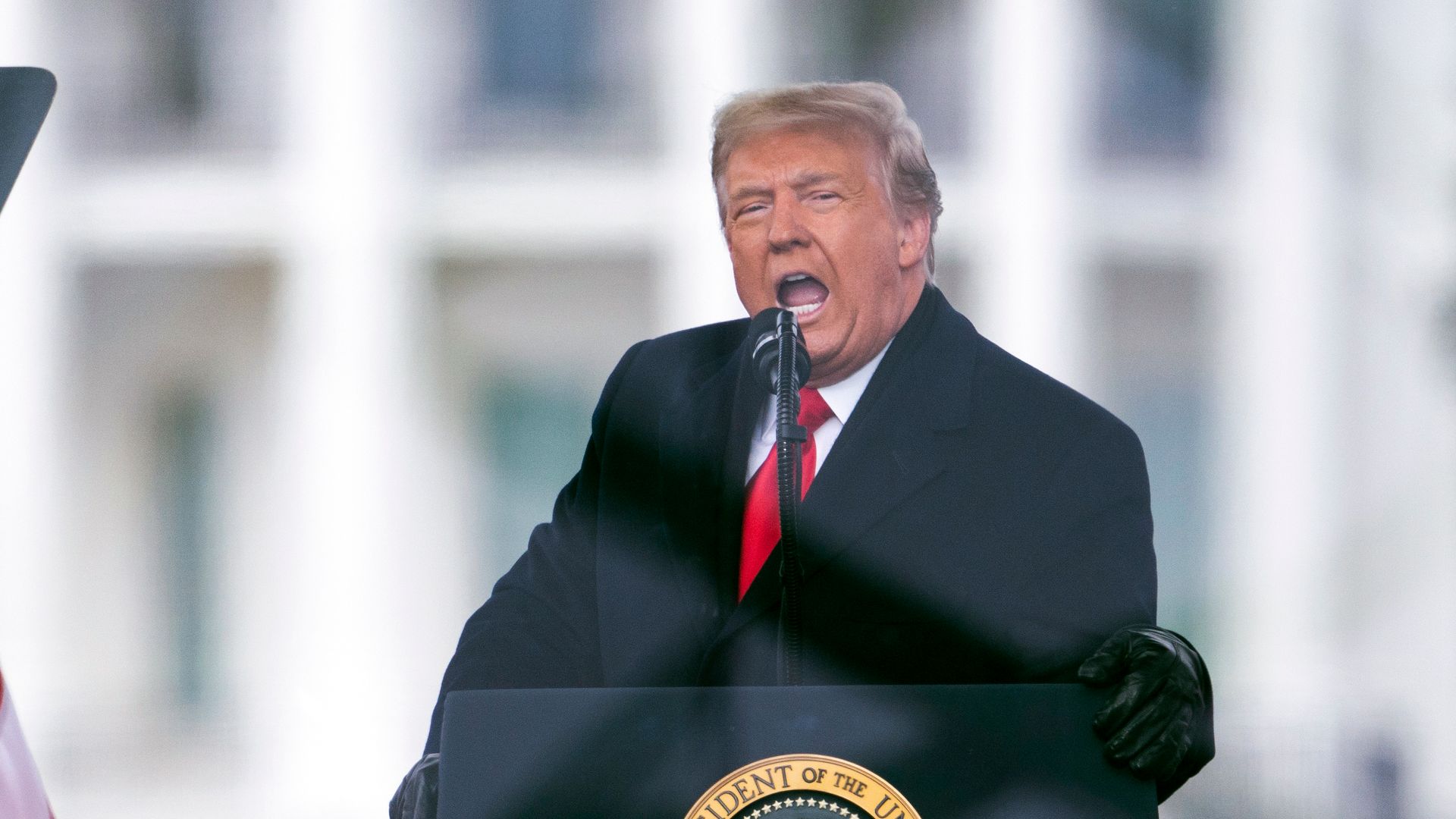
Judge orders release of redacted evidence in Trump election case
By Ray Bogan (Political Correspondent)
The judge overseeing the federal election criminal case against former President Donald Trump will allow redacted evidence to be released. The evidence is currently under seal in an appendix to the 165-page filing submitted earlier this month by Special Counsel Jack Smith.
Media Landscape
See how news outlets across the political spectrum are covering this story. Learn moreBias Distribution
Left
Right
Right
Judge Tanya Chutkan ruled in favor of prosecutors who wanted the appendix released with redactions. Donald Trump’s legal team argued against all new disclosures in the lead up to the election. Judge Chutkan said Trump’s blanket objection was “without merit,” but she is giving the former president seven days to appeal her decision.

Download the SAN app today to stay up-to-date with Unbiased. Straight Facts™.
Point phone camera here
“This court is not concerned with the electoral schedule,” Chutkan previously said when it came to making decisions regarding the case and its timing.
“The Special Counsel’s mandate is to uphold the law,” Smith wrote in a separate brief earlier this month. “It has no role or interest in partisan politics and has faithfully executed its prosecutorial duties in this case.”
On Oct. 2, Smith made a motion for Chutkan to determine whether Trump is immune from certain charges. The filing addressed the Supreme Court ruling which said presidents have absolute immunity from prosecution for actions that fall within their constitutional duties and presumptive immunity for official acts, but no immunity for unofficial acts.
Prosecutors allege Trump became “increasingly desperate” as he worked to overturn election results in seven states: Arizona, Georgia, Michigan, Nevada, New Mexico, Pennsylvania and Wisconsin.
The special counsel’s office accused Trump of lying to state election officials, manufacturing fraudulent electoral votes and attempting to enlist then-Vice President Mike Pence to obstruct Congress’ certification of the 2020 election results.
Prosecutors said Trump did all that despite acknowledging privately that claims of fraud were not true. They argued prosecuting Trump for these actions would not harm executive branch authority because they were done largely in his capacity as a candidate, not President.
The Judge overseeing the federal election criminal case against Donald Trump will allow redacted evidence to be released.
The evidence is currently under seal in an appendix to the 165-page filing submitted earlier this month by Special Counsel Jack Smith.
Judge Tanya Chutkan ruled in favor of prosecutors who wanted the appendix released with redactions; Donald Trump’s legal team argued against all new disclosures in the lead up to the election. Judge Chutkan said Trump’s blanket objection was “without merit”, but she is giving the former president seven days to appeal her decision.
Judge Chutkan has previously stated, “This court is not concerned with the electoral schedule,” when making decisions regarding the case and its timing.
Smith wrote in a separate brief earlier this month: “The Special Counsel’s mandate is to uphold the law. It has no role or interest in partisan politics…”
On October 2, Special Counsel Smith made a motion for Judge Chutkan to determine whether Trump is immune from certain charges.
The filing addressed the Supreme Court ruling which said Presidents have absolute immunity from prosecution for actions that fall within their constitutional duties and presumptive immunity for official acts, but no immunity for unofficial acts.
Prosecutors allege Trump became “increasingly desperate” as he worked to overturn election results in seven states: Arizona, Georgia, Michigan, Nevada, New Mexico, Pennsylvania and Wisconsin.
The Special Counsel’s office accused Trump of lying to state election officials, manufacturing fraudulent electoral votes and attempting to enlist Vice President Mike Pence to obstruct Congress’ certification of the results. Prosecutors said Trump did all that despite acknowledging privately that claims of fraud were not true. They argued prosecuting Trump for these actions would not harm executive branch authority because they were done largely in his capacity as a candidate, not President.
Media Landscape
See how news outlets across the political spectrum are covering this story. Learn moreBias Distribution
Left
Right
Right
Straight to your inbox.
By entering your email, you agree to the Terms & Conditions and acknowledge the Privacy Policy.
MOST POPULAR
-
 Reuters
Reuters
Diddy’s defense attorney abruptly requests withdrawal from case
Watch 1:4016 hrs ago -
 Getty Images
Getty Images
Judge allows CNN lawsuit potentially worth billions to continue
Read20 hrs ago -
 Reuters
Reuters
It’s a bird, it’s a plane, it’s the first video of Alef Aeronautics’ flying car
Watch 2:1321 hrs ago -
 Getty Images
Getty Images
Democrats in Congress receive lowest approval rating in Quinnipiac poll history
Watch 2:5922 hrs ago




